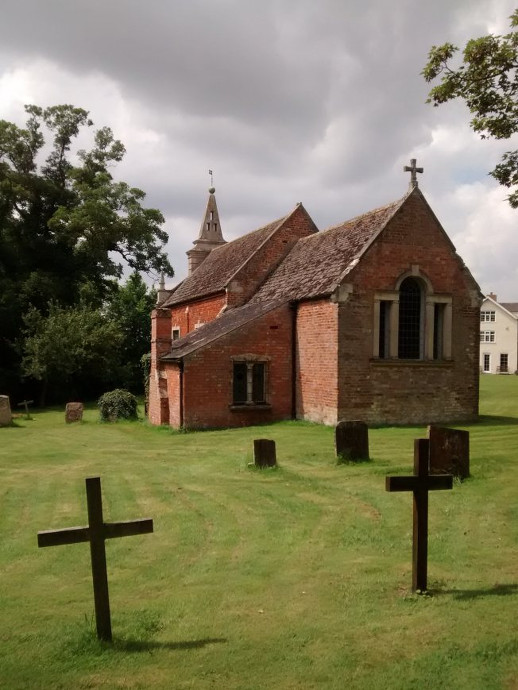Here, the intersection of the timeless moment
Is England and nowhere. Never and always.
TS Eliot, The Four Quartets: Little Gidding
By Matt Poacher. Originally published on Some Small Corner
I was near the A1, close enough to feel its drag, the traffic undertow. I was returning from a flying visit to the wilds of Oakham and Rutland Water, departing the warm belly of a friend’s new country house. I’d managed to get myself lost, maybe expectantly. I knew I was in the vicinity of Little Gidding, one of TS Eliot’s high Anglican bolt holes, one of the places he’d knelt before forces he couldn’t comprehend, forces he seemed determined to surrender to. He’d gone there in 1936, pulled in by different undertows: the magnetism of accreted faith, the allure of a tiny monkish community surviving the ravages of the centuries; hiding place of the fallen king – Charles, going underground after the defeat at Naseby in 1646. Little Gidding was the perfect fit for his timeless present, his need for a kind of messianic time – always present, always everywhere, always just out of reach. It affected Eliot enough for him to use the community’s name for the final part of the Four Quartets, the epic four-part poem published in 1943. Like all of his places, in print and in the mind, it becomes elevated, mythic – unreachable; you only gesture toward them, looking for traces. I stopped to check a map. ‘The Giddings’. It was in touching distance – more plant fibre than road, coming to a stop in a white expanse. A dead end. I swung the car.
Roaring summer. Wheat fields, barley fields, bright with gold. Cloud banks cast cold shadows. The land is parched; particles of exhaled dust drift on rising thermals; the fabric of the air vibrates in overlapping layers. The wet winter seems long ago – a watery echo in the margins of memory. On through scattered villages, unpeopled. Unverged roads flow directly into wheat fields. Occasionally there is a green break in the field pattern, topped with hovering purple. Stopping later it’s quickly clear these are borage fields, grown for their rich omega oils, each field with its own travelling colony of bees housed in neat boxy blue hives. Then a sign: Steeple Gidding; 200 yards beyond that, a small waymarker, and a pull to the left: Little Gidding.
It comes to this: the old Ferrar manor house, bone white in the sun; a car park. Through the trees is the church – weathered oolite limestone and grubby red brick. By now I’m on borrowed time, feeling the tug of my own undertow: family and the sub-molecular gravitational pull of home. I pitch across grass to the entrance, passing inside for the briefest of visitations. Dust roils in caught air, disturbed by new motion. The eye passes from nave to chancel, not much more than 30 feet in total. Beyond the chancel the smallest of private prayer rooms, austere and cool. The floor is uneven. I imagine centuries of knelt prayers, offered to the great invisibility beyond. I have nothing to add; instead I turn and leave, back out into the golden expanse of country, the middle of England, the middle of nowhere.
If you came this way,
Taking the route you would be likely to take
From the place you would be likely to come from,
If you came this way in may time, you would find the hedges
White again, in May, with voluptuary sweetness.
It would be the same at the end of the journey,
If you came at night like a broken king,
If you came by day not knowing what you came for,
It would be the same, when you leave the rough road
And turn behind the pig-sty to the dull facade
And the tombstone. And what you thought you came for
Is only a shell, a husk of meaning
From which the purpose breaks only when it is fulfilled
If at all. Either you had no purpose
Or the purpose is beyond the end you figured
And is altered in fulfilment. There are other places
Which also are the world’s end, some at the sea jaws,
Or over a dark lake, in a desert or a city—
But this is the nearest, in place and time,
Now and in England.
TS Eliot, The Four Quartets: Little Gidding
